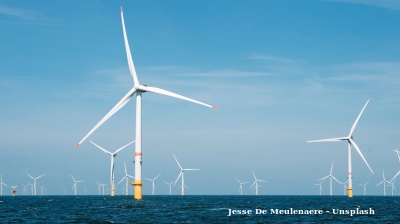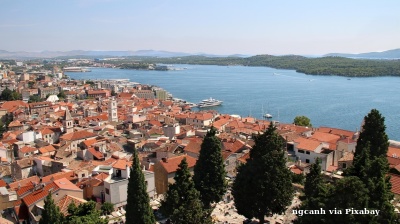Wildberries, a major online marketplace that operates across Eurasia, has voluntarily offset the carbon footprint of its order pick-up points in the Russian Far East, Russian Forbes reported citing a company statement.
The company became the first in Russia to take part in a pilot carbon trading project to limit greenhouse gas (GHG) emissions despite not being subject to the mandatory requirements of the country’s carbon unit registry.
Wildberries purchased 319 carbon units (CU) issued by SIBUR-Neftekhim – a subsidiary of SIBUR, Russia’s largest plastics producer that is active in sustainability initiatives – as part of the latter’s climate project to improve energy efficiency in ethylene oxide and glycol production. The offset covers emissions from approximately 150 of Wildberries’ own and partner-operated pick-up points in the Sakhalin Region for 2024.
“We believe that a climate-based transformation of the economy requires joint efforts of the state, business and society. Wildberries’ participation in the Sakhalin experiment on its own initiative is our conscientious step towards supporting the country’s climate goals. Even in the absence of direct requirements, we are ready to act proactively, creating environmental value and shaping the sustainable logistics of the future. We are grateful to SIBUR for its cooperation and are confident that such initiatives will help shape a responsible business climate in Russia,” said Wildberries’ Director of Sustainable Development Nadezhda Vorontsova.
Wildberries is the largest online retailer in Russia that operates in seven neighbouring countries in the Caucasus and Central Asia, as well as working with sellers in China and the UAE.
The company relies mainly on a pick-up point model where customers can pick up their orders at a time of their choosing and try on clothes and other items on the spot. As of 2025, Wildberries reports having more than 70,000 pick-up points across its markets to serve nearly 80 million customers.
The Wildberries-SIBUR partnership is an example of cross-industry cooperation in sustainable development, bringing together an e-commerce company and a major producer of plastics and other synthetic chemicals.
SIBUR manufactures a line of products made from recycled polymers and has been a party to more than 25 carbon unit transactions that have enabled its customers and partners to reduce or fully offset their carbon footprint, according to Forbes.
“I am confident that this initiative will become an inspiring example of cooperation between companies from different industries that follow the principles of sustainable development,” said Nadezhda Galaktionova, Head of Sustainability and Climate Solutions at SIBUR.
Sakhalin is the first region in Russia to launch a pilot project aimed at liming GHG emissions starting from 2022, with the goal of achieving carbon neutrality in the region by the end of 2025. The list of mandatory participants includes 50 regional organisations and commercial enterprises whose emissions exceed 50,000 tonnes of carbon dioxide per year. Companies with a smaller carbon footprint can also take part on a voluntary basis.
Located in the far eastern part of Russia, Sakhalin is rich in fossil fuels and is home to several large-scale oil and gas production projects, as well as a liquefied natural gas (LNG) terminal. The region’s rugged terrain has become an increasing draw for tourists.
bneGREEN

Malaysia–Vietnam offshore wind project to deliver 2,000 MW by 2034, strengthening regional green energy links
Malaysia’s upcoming offshore wind project connecting Vietnam to Peninsular Malaysia is expected to generate up to 2,000 megawatts (MW) of clean energy by 2034, marking a major step in the nation’s renewable energy expansion

EBRD invests €16.8mn in Croatia’s first large-scale battery storage and virtual power plant
Development bank to take its first equity stake in a standalone merchant storage project.

Kyrgyzstan says neighbours “upset” by country’s lack of water
“This year we were supposed to overcome shortages, but instead, they have intensified,” deputy head of cabinet tells Uzbekistan and Kazakhstan.

EXPLAINER: What is the EU’s CBAM and how will it affect global trade from 2026?
The European Union’s Carbon Border Adjustment Mechanism (CBAM) will enter its full operational phase on January 1, 2026, marking a major shift in global climate and trade policy.




